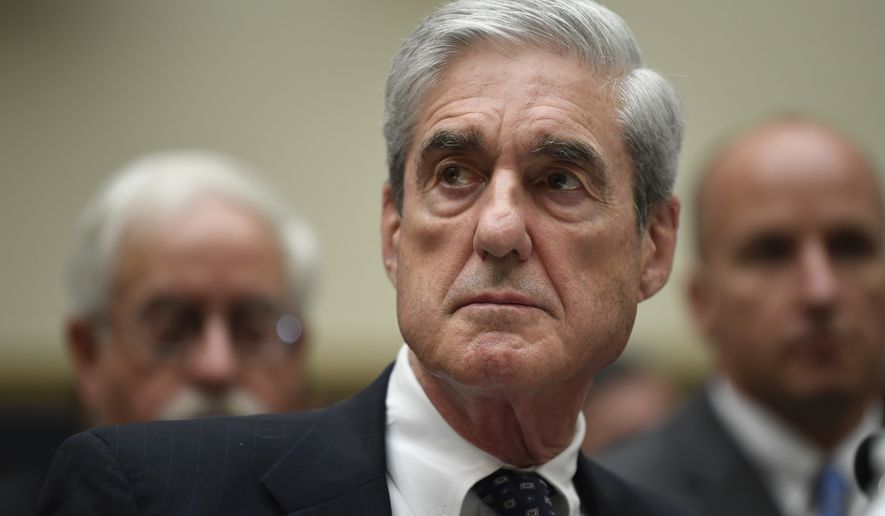The politicization of the FBI began under Director Robert S. Mueller, who transformed the bureau from a traditional law enforcement agency into a counterintelligence powerhouse in the wake of the Sept. 11, 2001, terrorist attacks, according to a former G-man.
The switch changed the culture of the agency, said Thomas J. Baker, who spent 33 years as an agent and later served as an instructor at the FBI Academy in Quantico, Virginia.
“The ethics of an intelligence agency is different from a law enforcement agency,” he told The Washington Times. “In a traditional law enforcement agency, agents live every day for the time to come when they get on the witness stand and say nothing but the truth. But an intelligence agency deals with lies and disruption. It’s a whole different mindset between the two.”
He said law enforcement agencies deal with facts, but counterintelligence organizations are more willing to bend the rules or fudge truths to appease political masters.
The FBI has struggled to shake off accusations of political bias over the past few years. Republicans often recite lists of incidents and actions that they say unfairly target conservatives while giving free passes to Democrats.
The raid this week of former President Donald Trump’s home in Palm Beach, Florida, and revelations last month from FBI whistleblowers that agents schemed to discredit the investigation into Hunter Biden’s financial dealings have further fueled claims of political bias.
SEE ALSO: FBI puts credibility on line with Trump raid
Republicans have also accused the FBI of using counterterrorism resources against parents who complained about local school issues such as mask mandates and the teaching of critical race theory.
Mr. Baker said the heavy-handed tactics in politically charged cases stem from Mr. Mueller’s transformation of the FBI into a counterintelligence agency.
In the aftermath of the Sept. 11 attacks, Mr. Mueller dramatically shifted the FBI’s priorities to focus on counterterrorism, counterintelligence and cybersecurity. He reorganized the bureau’s structure to create five branches, including three focused on national security and counterintelligence.
“Since Sept. 11, the FBI has implemented significant changes to integrate our intelligence and operational elements and enhance our ability to counter today’s most critical threats,” Mr. Mueller told Congress in 2005. At that time, he said, the bureau was focused on stopping terrorists and other overseas threats to the United States.
Mr. Baker said a direct line can be traced from that reorganization to the questions of partisanship that have dogged the bureau for the past six years.
“It opened the door,” he said, for Andrew McCabe, Peter Strzok and other key FBI players who pushed the Trump-Russia collusion investigation.
The FBI’s handling of the investigation was rife with misconduct. Agents falsified or withheld evidence from the U.S. Foreign Intelligence Surveillance Court.
Mr. McCabe, who for a time oversaw the Trump-Russia probe, was fired for lying to investigators about authorizing a leak to the media. The leak was intended to bat down concerns that he had a conflict of interest overseeing an investigation into Hillary Clinton’s use of a private email server and a separate probe of the Clinton Foundation after it was revealed that a top Clinton ally gave a major donation to Mr. McCabe’s wife’s Senate campaign.
As deputy assistant director of the counterintelligence division, Mr. Strzok led the bureau’s investigation into Russian interference in the 2016 presidential election. He was fired in 2018 for sharing anti-Trump text messages with a colleague.
Mr. Baker said the FBI’s reputation can recover but will require a complete overhaul to return to its roots as the nation’s preeminent law enforcement agency.
“When stuff happens, [current FBI Director] Christopher Wray talks about how they got rid of the bad apples, but no one is stepping and talking about the FBI’s culture,” Mr. Baker said. “They changed the culture, and these things are happening. We need to reform and recalibrate the culture.”
• Jeff Mordock can be reached at jmordock@washingtontimes.com.




Please read our comment policy before commenting.